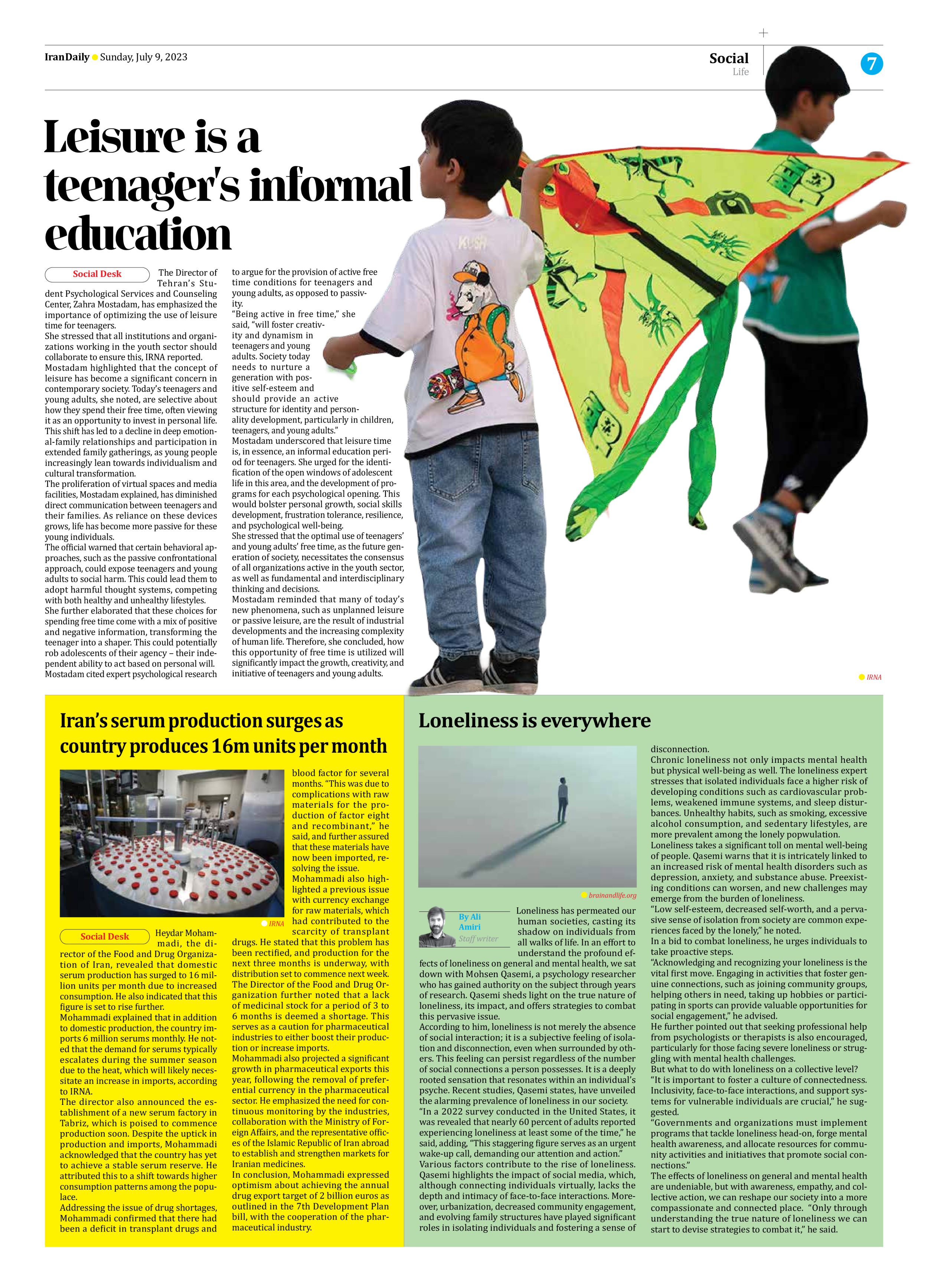
Loneliness is everywhere
By Ali Amiri
Staff writer
Loneliness has permeated our human societies, casting its shadow on individuals from all walks of life. In an effort to understand the profound effects of loneliness on general and mental health, we sat down with Mohsen Qasemi, a psychology researcher who has gained authority on the subject through years of research. Qasemi sheds light on the true nature of loneliness, its impact, and offers strategies to combat this pervasive issue.
According to him, loneliness is not merely the absence of social interaction; it is a subjective feeling of isolation and disconnection, even when surrounded by others. This feeling can persist regardless of the number of social connections a person possesses. It is a deeply rooted sensation that resonates within an individual’s psyche. Recent studies, Qasemi states, have unveiled the alarming prevalence of loneliness in our society.
“In a 2022 survey conducted in the United States, it was revealed that nearly 60 percent of adults reported experiencing loneliness at least some of the time,” he said, adding, “This staggering figure serves as an urgent wake-up call, demanding our attention and action.”
Various factors contribute to the rise of loneliness. Qasemi highlights the impact of social media, which, although connecting individuals virtually, lacks the depth and intimacy of face-to-face interactions. Moreover, urbanization, decreased community engagement, and evolving family structures have played significant roles in isolating individuals and fostering a sense of disconnection.
Chronic loneliness not only impacts mental health but physical well-being as well. The loneliness expert stresses that isolated individuals face a higher risk of developing conditions such as cardiovascular problems, weakened immune systems, and sleep disturbances. Unhealthy habits, such as smoking, excessive alcohol consumption, and sedentary lifestyles, are more prevalent among the lonely popwulation.
Loneliness takes a significant toll on mental well-being of people. Qasemi warns that it is intricately linked to an increased risk of mental health disorders such as depression, anxiety, and substance abuse. Preexisting conditions can worsen, and new challenges may emerge from the burden of loneliness.
“Low self-esteem, decreased self-worth, and a pervasive sense of isolation from society are common experiences faced by the lonely,” he noted.
In a bid to combat loneliness, he urges individuals to take proactive steps.
“Acknowledging and recognizing your loneliness is the vital first move. Engaging in activities that foster genuine connections, such as joining community groups, helping others in need, taking up hobbies or participating in sports can provide valuable opportunities for social engagement,” he advised.
He further pointed out that seeking professional help from psychologists or therapists is also encouraged, particularly for those facing severe loneliness or struggling with mental health challenges.
But what to do with loneliness on a collective level?
“It is important to foster a culture of connectedness. Inclusivity, face-to-face interactions, and support systems for vulnerable individuals are crucial,” he suggested.
“Governments and organizations must implement programs that tackle loneliness head-on, forge mental health awareness, and allocate resources for community activities and initiatives that promote social connections.”
The effects of loneliness on general and mental health are undeniable, but with awareness, empathy, and collective action, we can reshape our society into a more compassionate and connected place. “Only through understanding the true nature of loneliness we can start to devise strategies to combat it,” he said.







